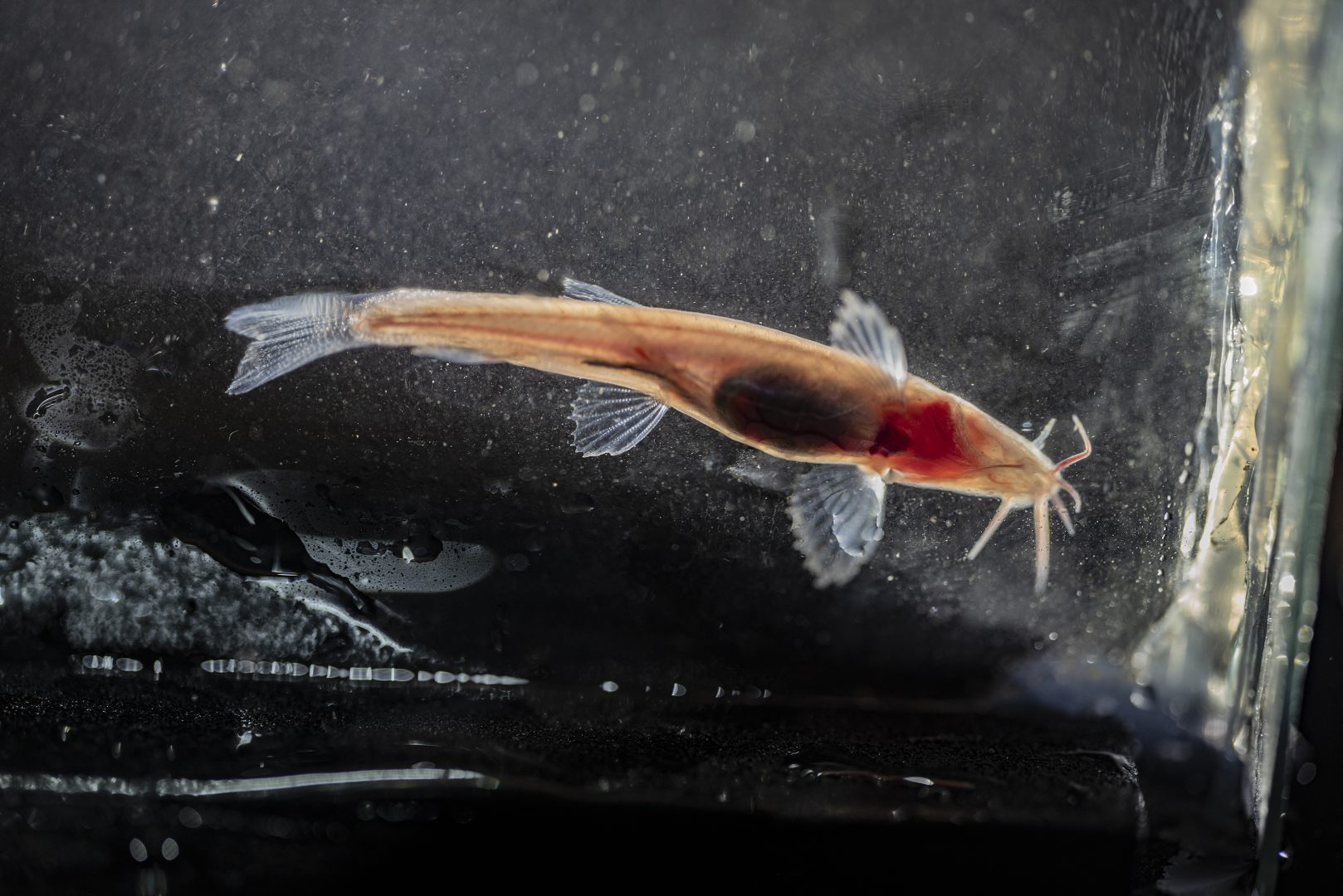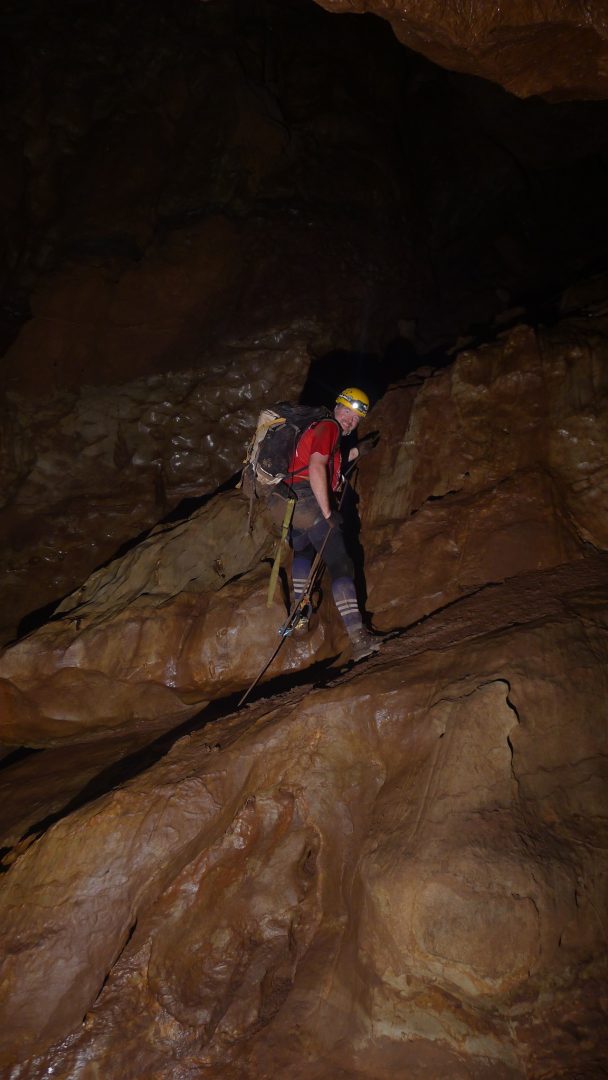
A University of Indianapolis honors student traveled internationally — returning home with a potentially groundbreaking discovery, memories of good food and hiking in jungles and a unique take on his honors project.
Jackson Hoover, senior biology major, traveled to Vietnam to investigate a new species of fish. Associate Professor of Biology Dean Wiseman suggested the idea after having Hoover in class.
“He was asking about doing an honors project, and I pitched a couple of ideas for him, you know, more conventional projects,” Wiseman said. “But then I said, ‘You know, if you want to do something different, I’ve got something for you.’ And as soon as I told him about it, I literally saw him lean forward in his chair. He was like, ‘Yeah, let’s do that.’”
The fish, which has not yet been confirmed as a novel species, was discovered inside the multi-cave Tiger Cave System with more than 25 miles of surveyed passage, according to Wiseman. Because of stricter conservation efforts and regulations in Vietnam, Wiseman and Hoover were able to bring back DNA samples and high resolution photographs to continue or publish their findings. Hoover said the cave surveying work was largely a team effort.
“Basically what we would do is we were as a team, dividing up into a certain area, whatever area that we decided to look at,” Hoover said. “And we’re taking pictures of all the different organisms, whether it was remains of crabs or insects, like whatever we could find. We were just documenting it. And then once we got back here, we’re hoping to work to identify some of those organisms ….”

Although Hoover spent time with the ecology side of biology with his honors project, he said he is focused on going into medicine during the rest of his studies at UIndy and in his future career.
“I knew I loved biology,” Hoover said, “… but I didn’t know what part of biology I wanted to go into, and then I was able to work at a local neurologist clinic and get to interact with patients on a daily basis and experience that part of medicine, and I kind of fell in love with it.”
Hoover said the next steps are to publish their research with hopes of notifying the local community and government of Vietnam about the species so it can be protected and confirming if the fish is a novel species. His honors project involves statistical analysis of the measurements of the fish — the full length of the body or from its nose to its gills.
Surveying wildlife benefits more than the researchers. Wiseman said preserving the value of biodiversity and “pristineness” of these sorts of areas rather than extracting its resources is a win-win for researchers and greater humanity. By assigning more value to these spaces, they can be enjoyed and sustained more easily. For Wiseman, this sort of surveying work is important not only from an ecological perspective, but personal growth as well. For Americans who have not been abroad or to Vietnam in particular, it could prove an enriching experience and an opportunity for personal growth.
“From the American perspective, it’s relatively inexpensive to visit,” Wiseman said. “It’s less expensive to go to Vietnam for a week than it is to go for three days in Hawaii. I can speak that from experience. And so we benefit as tourists experiencing a culture that’s different from our own. We can adopt ideas and foods and traditions that enrich our lives.”






